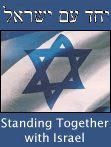Harper, Gay Marriage - Some Centrist Thought
Save this online in Del.icio.us. [?] Vote For this PostHarper. Gay marriage. Here're my centrist thoughts on the issue of what would happen if Harper was elected January 23rd.
To begin with, let's look at the fundamental points essential to understanding the issue.
Gays have the same rights as other Canadians. That means the right to a civil union, and the right to recognition of a religious marriage. In this latter case, though, we must remember that government couldn't force any religious officials to perform the ceremony,* and that it would be entirely up to each religion to determine it's own position.
In keeping with this mainstream view, most of the MPs who will be elected to Parliament support gay marriage. In a Tory gov't, this voting block would be mainly composed of opposition MPs but would also include much of the CPC.
We should remember that just as the opposition wouldn't have the 'exclusive rights,' for lack of a better term, to pro-gay marriage views, the CPC doesn't have the 'exclusive rights' to anti-gay marriage candidates. I'd also point out that a little more than half of the CPC voted against questioning the right to choice on abortion in Parliament. I'd suggest a roughly similar percentage of candidates are pro-gay rights.
(On a side-note, the team here at Centrerion supports gay-marriage, and would like to see someone compile an exhaustive list, including proof, of each candidate in the country's stance on the issue. The priority would be on incumbents, obviously.)
Gays have the same rights as other Canadians. That means the right to a civil union, and the right to recognition of a religious marriage. In this latter case, though, we must remember that government couldn't force any religious officials to perform the ceremony,* and that it would be entirely up to each religion to determine it's own position.
In keeping with this mainstream view, most of the MPs who will be elected to Parliament support gay marriage. In a Tory gov't, this voting block would be mainly composed of opposition MPs but would also include much of the CPC.
We should remember that just as the opposition wouldn't have the 'exclusive rights,' for lack of a better term, to pro-gay marriage views, the CPC doesn't have the 'exclusive rights' to anti-gay marriage candidates. I'd also point out that a little more than half of the CPC voted against questioning the right to choice on abortion in Parliament. I'd suggest a roughly similar percentage of candidates are pro-gay rights.
(On a side-note, the team here at Centrerion supports gay-marriage, and would like to see someone compile an exhaustive list, including proof, of each candidate in the country's stance on the issue. The priority would be on incumbents, obviously.)
The conclusion one must draw from these percentages of pro-gay MPs is that under Harper and the CPC, a free vote in the House would lead to a reaffirmation of gay rights. The question is, then, why would Harper, if he opposes gay marriage, allow a free vote that would lead to a concretizing of gay marriage?
My analysis is that Harper's strategists needed to form a compromise between the anti-gay rights and pro-gay rights people in his party. Knowing the outcome of a free vote means that the homophobes can be assuaged by having the free vote, while the pro-gay elements can be reassured because they won't see gays lose their rights. This free-vote stance even allows Harper to argue he supports democracy by allowing this to be up to the individual consciences of MPs.
*The precedent for this would be in a recent Supreme Court ruling. The Supreme Justices overturned a lower court's order to a Jew to take down his Sukkah on his condo balcony. The Supreme Court ruled that it wasn't up to the lower court judge to decide which religious authority to believe (there were conflicting rabbinical opinions). There was another recent judgement by the Supreme Court similar to that one, but I've forgotten what it consisted of.






0 Comments:
Post a Comment
<< Home